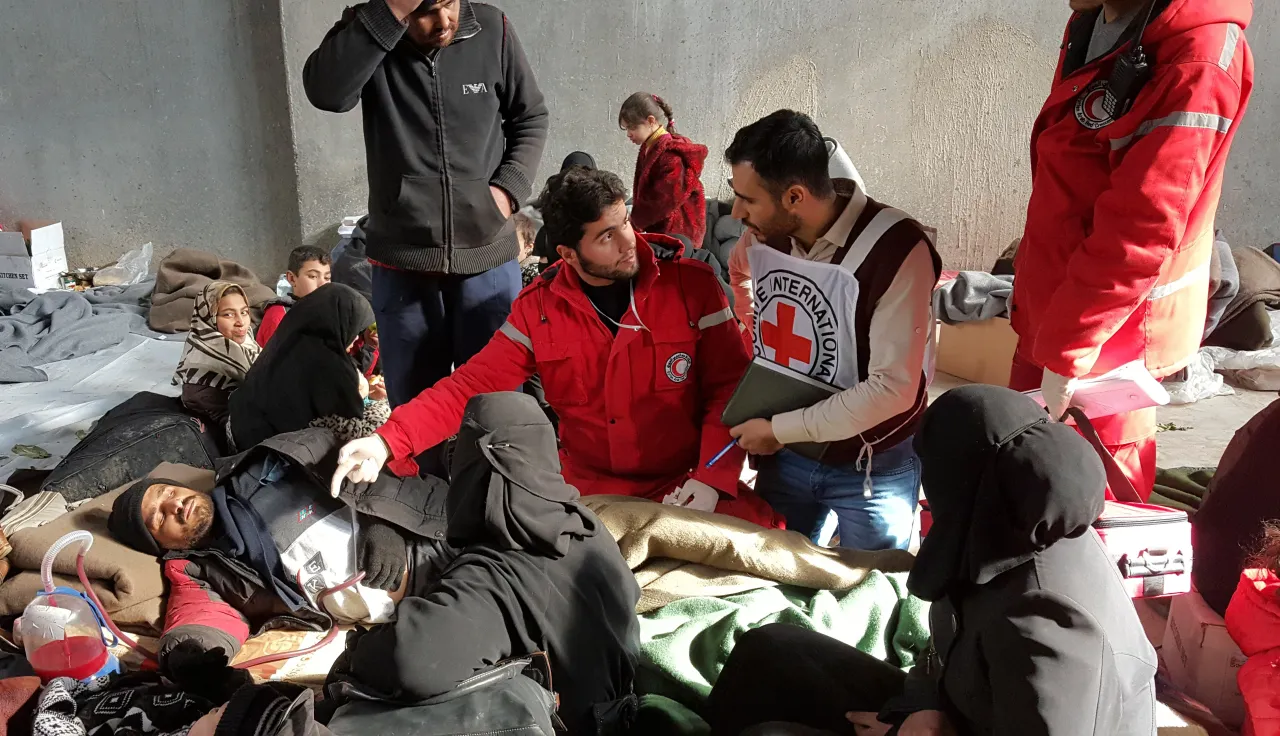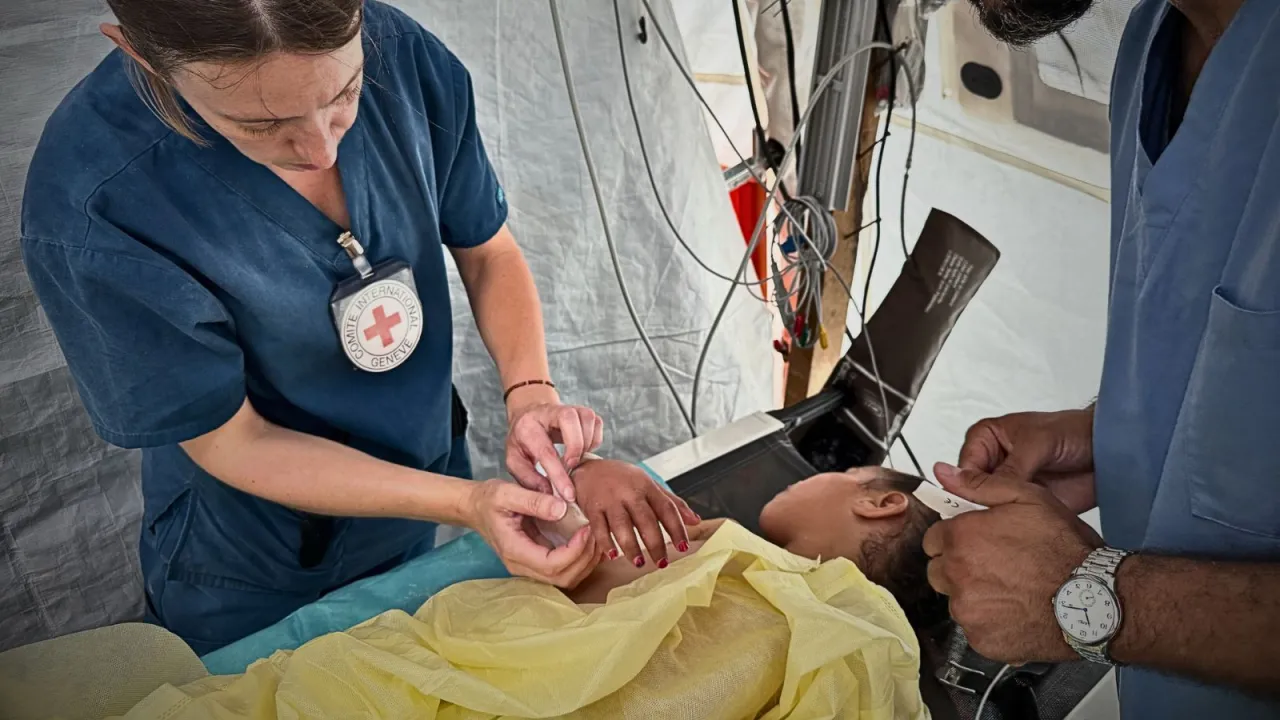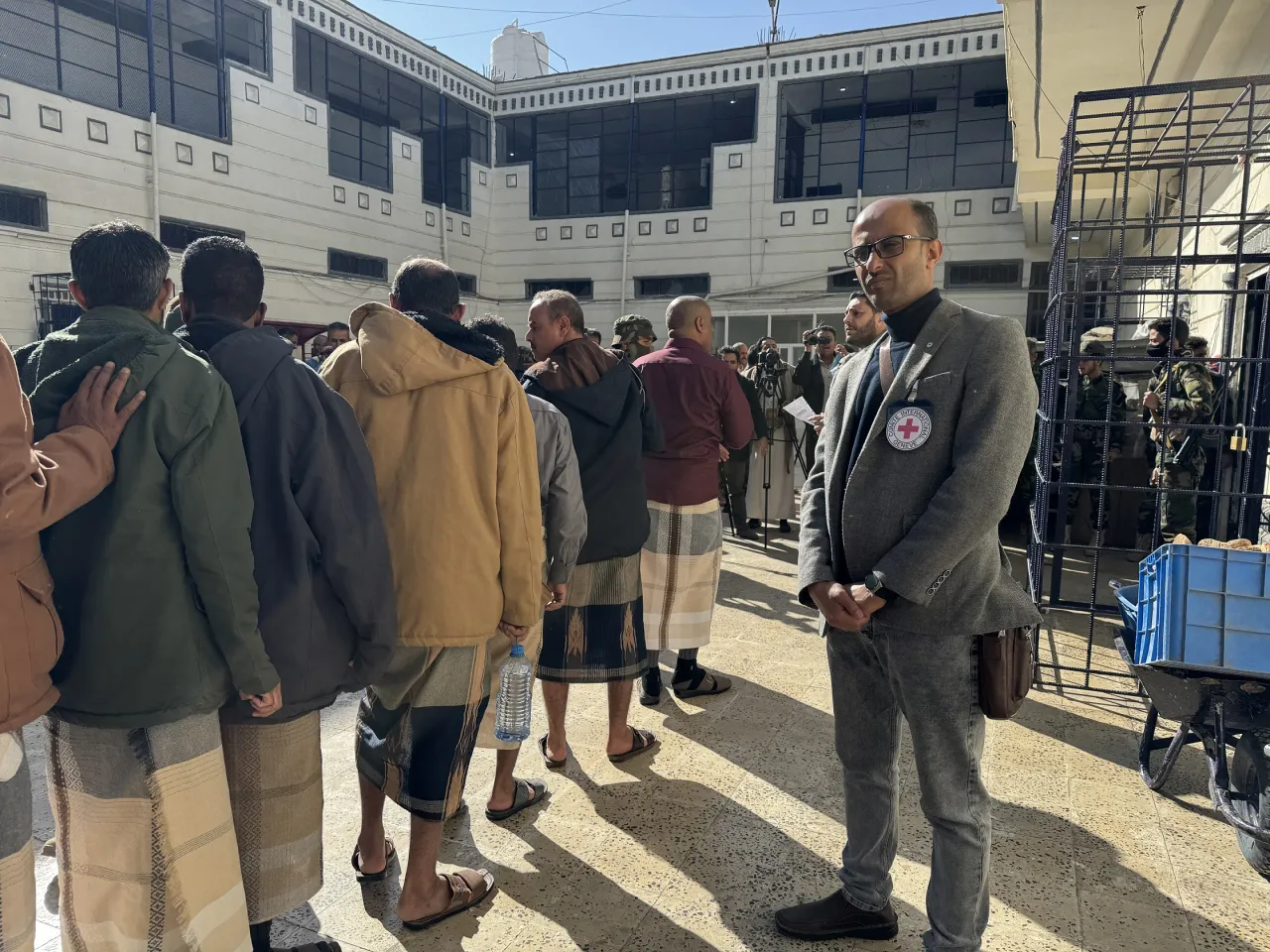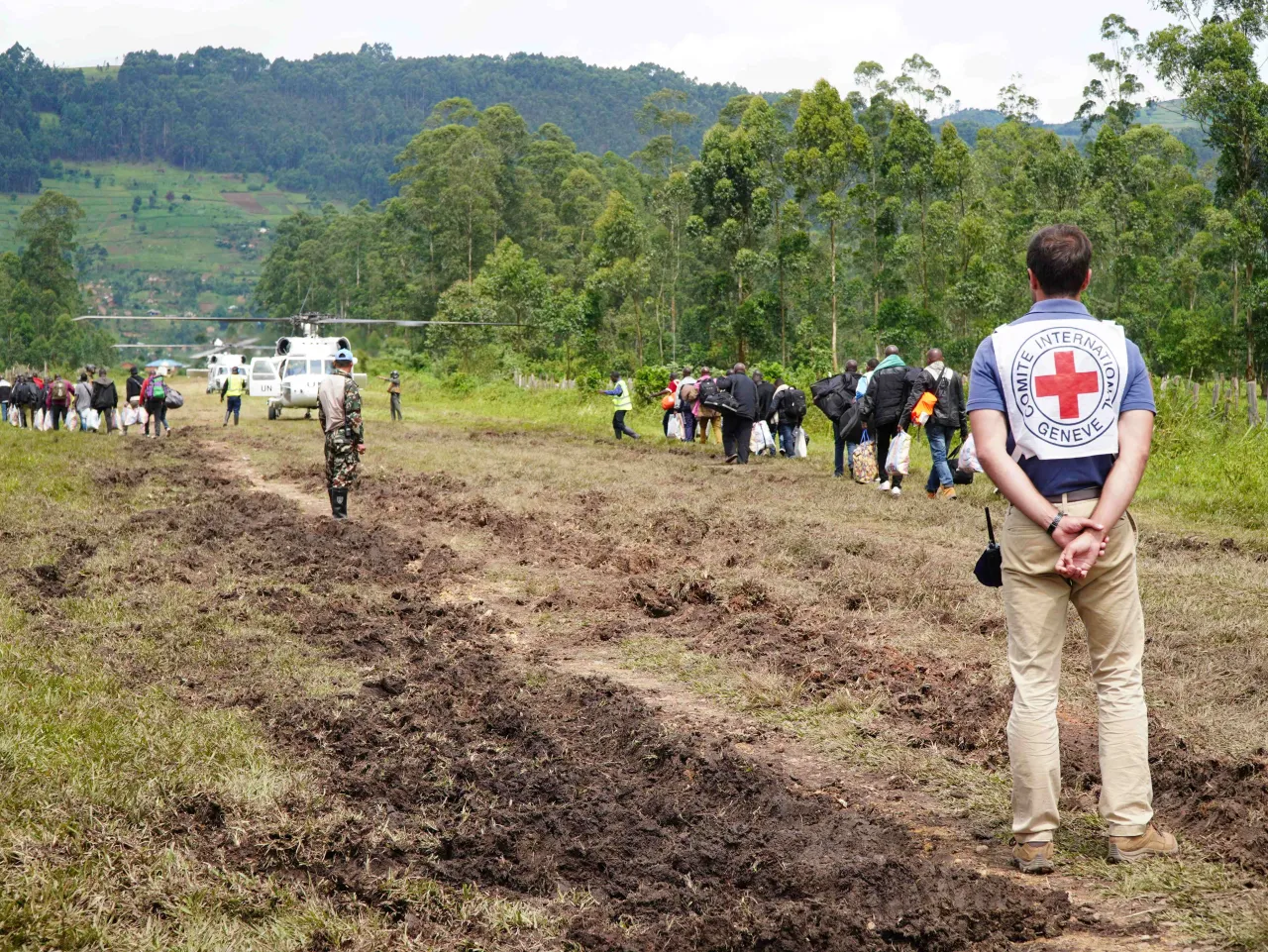The Fundamental Principles: 60 Years of humanity in action

In times of war, disaster or displacement, people caught in crisis need one thing above all else: help they can trust and depend on. This is where the International Committee of the Red Cross (ICRC) and our Red Cross and Red Crescent Movement partners step in. For over 160 years, we have worked on frontlines and in communities shattered by violence and upheaval - delivering medical care, reuniting families, visiting detainees, restoring water systems, and reminding all parties that the safety of civilians must be respected under all circumstances.
What continues to make this work possible is not only our presence or our expertise, but the Fundamental Principles that guide our humanitarian action. Adopted in 1965 as a formal expression of the way we had always operated, these seven Principles - humanity, impartiality, neutrality, independence, voluntary service, unity and universality - remain the foundation of our humanitarian action.
They are not abstract ideals. They are the tools that enable us to deliver help to those who need us most.

Why the Principles matter
The Fundamental Principles provide a compass for humanitarian action. They guide our choices in some of the most dangerous and polarized environments, ensuring that people receive help based on their needs alone - not who they are, where they come from, or which side of a conflict they find themselves on.
Because of the Fundamental Principles, the International Red Cross and Red Crescent Movement can:
• Negotiate access across frontlines to deliver food, water, medical care and shelter where others cannot go.
• Carry out safe evacuations and medical transfers, helping civilians and wounded fighters reach safety.
• Reunite families separated by armed conflict, disaster or migration.
• Ensure the dignified repatriation of remains, bringing answers to grieving families.
• Support essential services such as health care, water systems and epidemic response in fragile settings.
These outcomes are only possible because the Principles enable trust and dialogue - with communities, with authorities, and with all sides of a conflict.
Principles in action
Every day, the Principles translate into life-saving impact:
• In Gaza, more than 80,000 consultations, 3,000 surgeries and 4,000 childbirths were carried out at the ICRC-supported field hospital in Rafah in its first year, ensuring urgent care despite the fighting.
• In the Ukraine-Russia international armed conflict, the ICRC has helped more than 14,800 families learn the fate of missing loved ones and facilitated over 20,900 personal messages between prisoners of war and their families.
• In Yemen, the ICRC has facilitated the release and safe return of more than 1,000 detainees since 2020, reuniting families divided for years.
• In the Democratic Republic of Congo, over 1,300 disarmed soldiers and their families were transferred across frontlines to return home safely.
• In Afghanistan, rehabilitation centres provide prosthetic limbs and physiotherapy to tens of thousands of people injured by war, helping them walk again and regain independence.
• After disasters from Pakistan’s floods to the Beirut port explosion, Red Cross and Red Crescent volunteers responded impartially, providing shelter, health care and emergency relief.
These stories show what the Principles make possible: humanity in action.

Principles under pressure
Yet today, principled humanitarian action is under threat.
• Attacks on humanitarian workers are at record levels. 2024 was the deadliest year on record for humanitarians, and 2025 is following the same trajectory.
• Politicization of aid undermines impartiality, with assistance increasingly tied to political agendas.
• Disinformation campaigns erode trust and jeopardize safe access to communities in need.
• Dehumanizing rhetoric strips civilians of protection, while militarization of aid blurs the line between soldiers and humanitarians.
Emerging technologies also bring new dilemmas: while digital tools have made aid faster, they risk eroding empathy, creating dependencies, and amplifying perceptions of bias. Here, too, the Principles remain our compass — ensuring humanity, neutrality, impartiality and independence guide us in the digital age.
A call to respect humanitarian space
The Principles create space for action, but only if they are respected. We call on States and all actors to:
• Safeguard neutral, impartial and independent humanitarian space.
• Ensure sanctions and counterterrorism measures do not block aid.
• Protect the independence of National Societies.
• Avoid political restrictions or conditionalities on humanitarian funding.
• Counter disinformation and attacks targeting humanitarian workers.

60 years and beyond
This anniversary is not only about looking back. It is about reaffirming that the Principles are as vital today as they were in 1965 - and that they will remain essential for the challenges of tomorrow.
Across the Movement, commemorations are taking place from Monaco to Vienna to Brussels. Together, they highlight that the Principles are not just part of our history - they are our future. They make it possible for us to stand with people in their darkest hours, restoring dignity, hope and humanity.
For 60 years, the Fundamental Principles have opened doors where they were closed, built trust where suspicion reigned, and delivered help where it was most needed. They remain our foundation - and a lifeline for millions of people every year.



